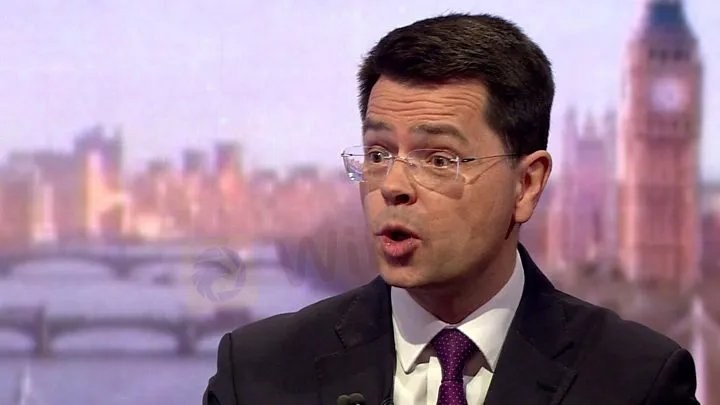简体中文
繁體中文
English
Pусский
日本語
ภาษาไทย
Tiếng Việt
Bahasa Indonesia
Español
हिन्दी
Filippiiniläinen
Français
Deutsch
Português
Türkçe
한국어
العربية
Brexit: More votes promised as Labour says May running down the clock
Abstract:Media playback is unsupported on your device Media captionHousing and Communities Secretary James

Media playback is unsupported on your device
Media captionHousing and Communities Secretary James Brokenshire on securing “seamless border” in Ireland
MPs will get another chance to vote on Brexit this month - but it may not be the final, decisive vote on Prime Minister Theresa May's deal.
Instead, they could be given another series of non-binding votes on possible Brexit alternatives, Housing Secretary James Brokenshire said.
The prime minister needs to get a deal approved by Parliament by 29 March to avoid a no-deal Brexit.
Labour has accused her of “cynically” running down the clock.
On Wednesday, Mrs May will ask MPs for more time to get legally-binding changes to the controversial Northern Irish backstop, which she believes will be enough to secure a majority in Parliament for her deal.
Brexit: What could happen next?
Brexit: A really simple guide
But the following day, Labour will attempt to force the government to hold the final, “meaningful vote” on Mrs May's Brexit deal by 26 February.
Mr Brokenshire refused to commit to this date in an interview with the BBC's Andrew Marr Show, saying there could be more votes on amendments to the proposed deal instead.
“If the meaningful vote has not happened, so in other words things have not concluded, then Parliament would have that further opportunity by no later than 27 February,” said Mr Brokenshire.
I think that gives that sense of timetable, clarity and purpose on what we are doing with the EU - taking that work forward and our determination to get a deal - but equally knowing that role that Parliament very firmly has."
May says she can get Brexit deal through
What's behind Corbyn's Brexit letter to May?
New ideas for the Brexit border backsto
But Labour's shadow Brexit secretary, Sir Keir Starmer, says he believes the prime minister is “pretending to make progress” on the Irish backstop issue.
He says what she actually intends to do is return to Parliament after the 21/22 March European Council summit the week before Brexit and offer MPs a “binary choice” - her deal or no deal.
“We can't allow that to happen,” Sir Keir told The Sunday Times.
There needs to be a day when Parliament says that's it, enough is enough."
Please upgrade your browser
Your guide to Brexit jargo
Enter the word or phrase you are looking for
Search
Labour is proposing its own Brexit plan, which would involve the UK staying in a customs union with the EU, which they say could get the backing of a majority of MPs.
The government has not ruled out supporting this - and has promised a formal response to it and further talks with Labour - but they say it would prevent the UK from making its own trade deals after Brexit.
There are fewer than 50 days until Brexit. The law is already in place which means the UK will leave the EU on 29 March 2019.
Mrs May's Brexit deal - which she spent months negotiating and had agreed with the EU - covers the terms of the UK's divorce and the framework of future relations.
But it was rejected by the UK Parliament and if it is not approved by Brexit day, the default position would be a no-deal Brexit.
Last month, Parliament voted in favour of an amendment that supported most of the PM's deal but called for backstop - which is a last-resort option to prevent a hard border in Ireland - to be replaced with “alternative arrangements”. The prime minister is now in talks with Brussels to seek these changes to the backstop.
A number of government ministers will also be meeting their counterparts across the continent this week, in order to underline Mrs May's determination to achieve a deal.
What effect has Brexit had on the UK economy?
No-deal Brexit ferry contract scrapped
What preparations are being made for a no-deal?
Critics of the backstop in Mrs May's current deal say they could tie the UK to EU rules indefinitely or mean Northern Ireland ends up under a different system to the rest of the UK.
But the Irish government and the EU have repeatedly rejected calls for changes.
Other options likely to be debated by MPs on Thursday include extending Article 50, the legal mechanism taking the UK out of the EU on 29 March, to allow more time to reach an agreement with Brussels.
Disclaimer:
The views in this article only represent the author's personal views, and do not constitute investment advice on this platform. This platform does not guarantee the accuracy, completeness and timeliness of the information in the article, and will not be liable for any loss caused by the use of or reliance on the information in the article.
WikiFX Broker
Latest News
CySEC Warns Against Unauthorized Investment Firms in Cyprus
Why Even the Highly Educated Fall Victim to Investment Scams?
Warning Against Globalmarketsbull & Cryptclubmarket
Dukascopy Bank Expands Trading Account Base Currencies
UK Sets Stage for Stablecoin Regulation and Staking Exemption
Axi Bids AUD 52M to Acquire Low-Cost Broker SelfWealth, Outbidding Competitor Bell Financial
Crypto Influencer's Body Found Months After Kidnapping
STARTRADER Issues Alerts on Fake Sites and Unauthorized Apps
Italy’s CONSOB Blocks Seven Unregistered Financial Websites
Bitfinex Hacker Ilya Lichtenstein Sentenced to 5 Years in Prison
Currency Calculator


